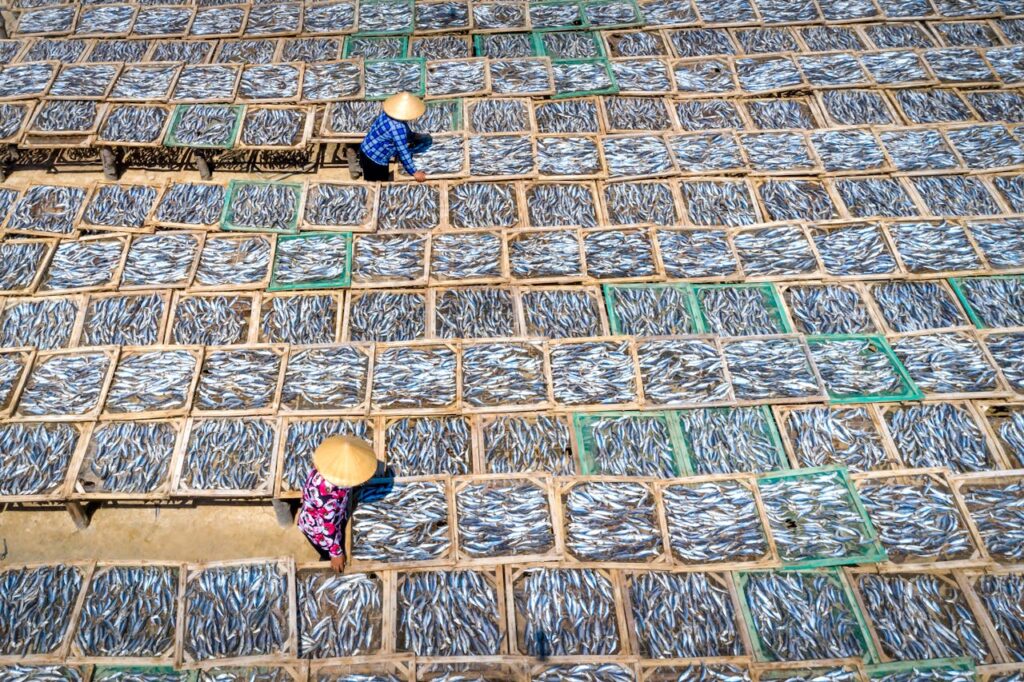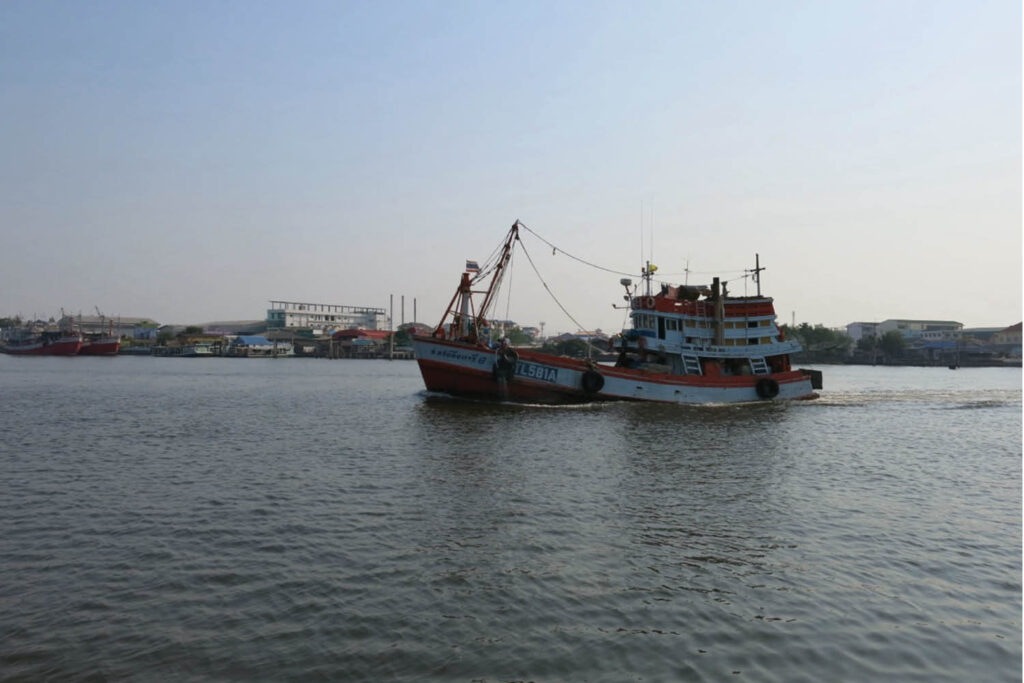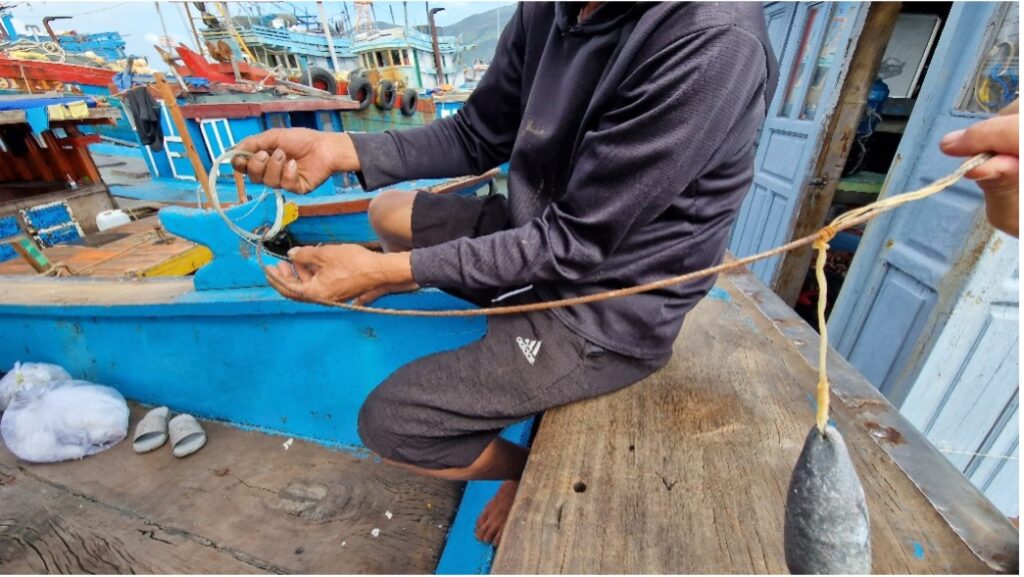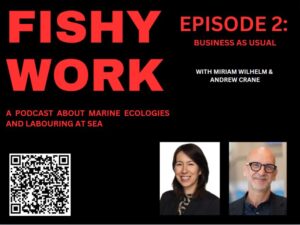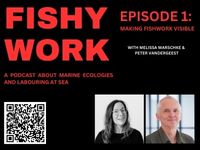Alin Kadfak created a podcast series about the fishing industry and labour to shed light on the often overlooked work done at sea. The podcast aims is to bring discussions with researchers, civil society actors, journalists, and union leaders who have dedicated themselves to understanding the complexities of fisheries governance and labour conditions. The fishing industry faces sustainability challenges, and workers are often exposed to dangerous conditions. We believe that now is a crucial time to address the unjust working conditions in commercial fisheries, particularly in light of recent modern slavery scandals in seafood supply chains.
Why a podcast series about fish and labour?
The answer is easy! We want to bring work the work done far out at sea into your living room, into your earbuds, and your skulls: while you spend your summer holiday sipping piña coladas in the shade, you can also learn one or two about where your seafood comes from.
You might have vague memories of media reports about abuse in the industry, even whisper it quietly, forced labour, that you try not to think about so much as you bite into your tuna sandwiches. But lots is going on beyond romance, scandals and vague guilt.
In this series, we want to learn about fish and work through a series of discussions with researchers, civil society actors, journalists and union leaders, who have dedicated a good deal of their lives to making sense of it all before sharing these discussions with you. We want to take you into deep waters and speak to people who have cast a critical eye over ecologies, labour and fish governance.
Problems far out at sea
Global fisheries governance faces two major sustainability challenges: ensuring seafood products are both ‘green’ and ‘ethical’. Fisheries’ governance is complex: seafood is one of the most traded commodities globally, and supply chains are often long and difficult to trace. Fishing vessels are also one of the most dangerous workplaces in the world due to storms, accidents, handling dangerous equipment on a moving boat, and worker exhaustion due to long working hours and time at sea. An estimated 260 million workers in marine fisheries worldwide, of which 50 million are engaged in direct fishing, and are often subject to conditions that would not be acceptable for terrestrial work.
Now is a critical time to promote equity in a blue economy agenda, particularly in this Decade of Ocean Science for Sustainable Development (2021-2030). This means addressing the unjust working conditions in commercial fisheries, revealed by recent modern slavery scandals in seafood supply chains.
